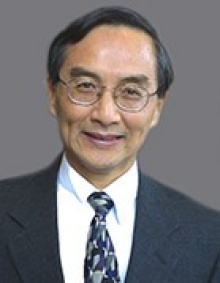Faculty Spotlight - Winston Chang
Professor Winston Chang is the Director of the Master’s Program for the Department of Economics. His research and teaching focus on international trade, international finance, and economic growth. Professor Chang received his PhD from the University of Rochester. You can find him teaching Topics in Microeconomics (ECO 406 and 576), International Trade Policy (ECO 406h and 595), Topics in International Economics (ECO 493), and International Trade Theory (ECO 435, 535, and 775)!

Dr Neel Rao
Why did you choose economics? Why did you choose your subfield?
WC: My choice of economics was encouraged and persuaded by Prof. Henry Y. Wan Jr., who recently retired from Cornell University. In my junior year at the Department of International Trade, School of Management, National Taiwan University, Prof. Wan, a fresh Ph.D. from MIT, returned to his alma mater to teach and fulfill his obligation on having received the Taiwan government's study-abroad fellowship. I was fascinated by his courses in international trade and industrial management. I followed his advice to apply to the University of Rochester to seek guidance from Professors Lionel McKenzie and Ronald Jones, which started my economics career path.
What research are you working on right now?
WC: I am currently revisiting the topic "Is the formation of regional free-trade blocs a stepping stone or a stumbling block toward world economic integration?" I am also working on political competition, specifically on lobbying and its effects on economic policymaking.
What was your favorite paper to write, and why?
WC: One of my favorite papers is "The Existence and Persistence of Cycles in a Non-Linear Model: Kaldor's 1940 Model Re-examined." (Review of Economic Studies 1971). This paper shows the inadequacy of the famous Kaldor's business cycle model and provides the needed correct conditions for cycles to exist. It was reprinted in 1993 in Non-Linear Dynamics in Economic Theory of The International Library of Critical Writings in Economics.
What is your favorite class to teach, and why?
WC: International Trade Theory (Eco 435-535, 775) and International Trade Policy (Eco 406h-595). I find international economics an enduring field in economics that has survived a fast-changing pattern of emphasis and popularity, such as from growth to urban to environmental, etc.
What was your favorite class as an undergrad?
WC: International economics taught by Henry Wan and economics statistics (which I served as a TA).
What is your top piece of advice for your students?
WC: With the fast growth of data availability and the ease of data mining, you must be well equipped with statistical techniques to exploit the opportunities. Also, strengthen the math skills and be prepared to do rigorous economic modeling and analysis. Economics is not a closed field. It entwines with numerous interdisciplinary fields. To broaden your scope, read avidly as fast and as comprehensively as possible on all related subjects abundant in this information-overloaded economy. Moreover, one must also keep track of the fast rate of technological change, which will help guide your expectation of the world economy's future. Every day you learn tidbits here or there and encounter individual trees, and someday you will likely see your forest and your sky. Economics is a fascinating field to study.